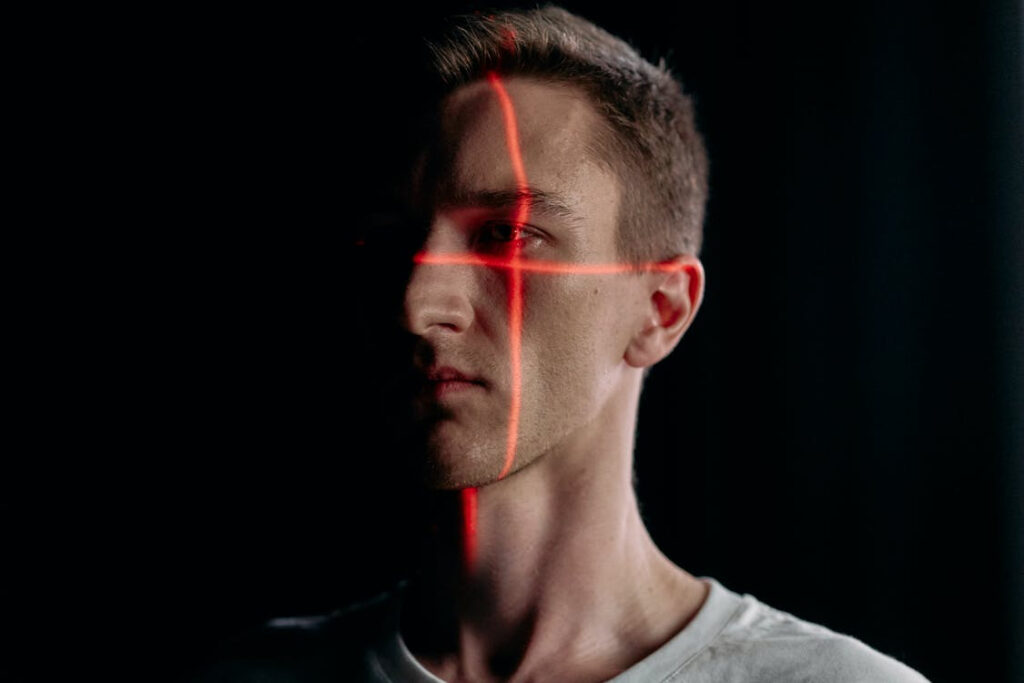Facebook and Google Have Powerful Face ID Tech They Are Not Using

This might sound like some strange outdated clickbait headline, but read along to understand the significance of this news. In early September, New York Times’ Kashmir Hill wrote an interesting piece about a technology Facebook and Google are unwilling to release. This is an advanced form of facial recognition that is not limited to identifying a device’s owner; it identifies specific people.
Facebook’s “creepy” face ID tech
Facial recognition technology is already decades old, but in most countries, it has been focused on functions other than identifying people under a surveillance system. Tech companies in the United States and other democratic countries have not attempted to commercialize AI image processing that can identify people.
However, as Hill revealed, the two biggest tech companies in the world already have this creepy technology that is sure to ring privacy alarms. Hill wrote that as early as 2017, Facebook already had a working prototype of this technology contained in a smartphone. This was informally demonstrated at Facebook’s headquarters in Menlo Park, California.
Facebook employees showcased the power of this tech by having themselves identified by the system by name. One employee, who initially thought it was just some prank, expressed awe upon realizing that it was a real working technology. Another employee, however, noted that it was creepy—something typically depicted in dystopian movies.
Facebook is no stranger to creepy, privacy-invading tech projects. Some months ago, the company revealed that it was working on an AR eyewear that can read minds. What makes the face identification technology different, though, is that it is already fully functional. It has demonstrated a great level of accuracy around half a decade ago.
This face identification technology was not born out of malicious intentions. Facebook said that it could be helpful for people with vision impairments to identify the people around them. It can help people with face blindness and those who frequently need to interact with new people (as part of their jobs). However, Facebook admitted that the technology was too risky.
The social media giant also took a cue from their 2015 debacle in using facial recognition technology to automatically tag friends on photos uploaded to Facebook. This was a costly misstep that led to a class action brought about by privacy advocates. The class suit eventually forced the company to pay $650 million in settlement.
Google’s self-terminated face ID project
Google started working on facial identification as early as 2011. The search engine giant sought to provide a way to search for people through their faces. However, only some months after the project was revealed, then Google chairman Eric Schmidt announced that the company decided to keep back the technology. “We built that technology, and we withheld it,” Schmidth said.
Schmidt noted that it was the only technology Google created but stopped from getting deployed. Google vowed not to offer facial recognition products unless crucial technology and policy concerns are addressed. The company also promised not to sell its facial recognition data.
Changing times?
Despite Google and Facebook’s self-restraint when it comes to facial recognition technology, new startups have come up with similar technologies. Some examples of which are PimEyes and Clearview AI. PimEyes is advertised as a “face search engine” and reverse image search tool. Clearview AI is a company that specializes in providing facial recognition software and resources to law enforcement agencies and government bodies.
It would seem that the privacy concerns of the past no longer apply to these new facial recognition companies. Many other companies are also offering new facial recognition solutions, especially those that take advantage of the visual prowess of newer generative AI technologies.
However, it is worth noting that Clearview AI has been fined multiple times over privacy violations. It was fined $22.6 million in 2021 by UK authorities, another $8 million in 2022, and a third fine of $20 million in October 2023. These numbers are nowhere near the $650 million loss Facebook suffered in 2015, though.
Hill asked a spokesperson from Meta (Facebook) about these developments, particularly the company’s plans of using facial recognition in their apps now that there seems to be greater openness to this technology. The response from the spokesperson suggests that Meta may indeed use the technology. It depends on how consumers respond and the policies that will be crafted by governments.

